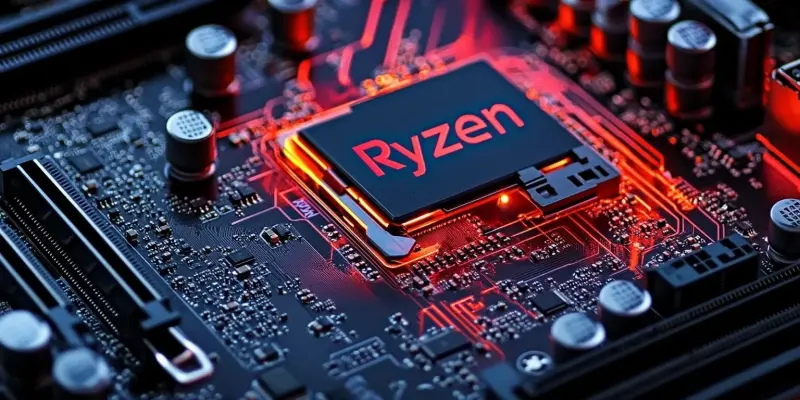With the latest announcement from AMD, the new Ryzen 9 9950X3D and 9900X3D CPUs have officially joined the company’s 3D V-Cache lineup, stirring discussions about their potential impact on gaming performance. These new models come with advanced technical specifications but may not deliver a significant leap in gaming experiences compared to their predecessor, the Ryzen 7 9800X3D.
Specifications and Performance
The Ryzen 9 9950X3D is equipped with 16 cores and 32 threads, boasting a total cache of 144 MB. Meanwhile, the Ryzen 9 9900X3D offers a 12-core, 24-thread configuration with 140 MB of cache. Despite these impressive figures, real-world gaming performance gains might be minimal due to the sophisticated optimization in modern game engines, which typically favor an eight-core environment.
According to Martijn Boonstra, AMD’s Product and Business Development Manager, the use of higher core counts and threads in the new CPUs won’t necessarily translate to noticeable improvements in gaming performance. This is largely because many contemporary game engines are already designed to take full advantage of eight cores, and adding more cores to the mix does not provide substantial benefits.
Market Position and Consumer Demand
The introduction of the Ryzen 9 9950X3D and 9900X3D is likely to diversify AMD’s product lineup, offering more choices for consumers and helping to manage demand for 3D V-Cache processors. The Ryzen 7 9800X3D has enjoyed significant popularity, partly due to Intel’s underwhelming ARL-S launch, making it a go-to option for many gamers and enthusiasts. Whether the new Ryzen 9 models can replicate this success remains to be seen.
Despite the higher core and thread counts, the new processors may not provide gamers with enough incentives to upgrade solely for enhanced gaming performance. Instead, these CPUs might cater to those seeking better performance for other demanding tasks that benefit from additional cores and threads.
Broader Implications
While the new CPUs excel in technical specifications, the practical impact on gaming is limited. This release seems more focused on providing additional options and meeting the high demand for advanced CPUs rather than delivering groundbreaking performance for gaming. For the general consumer, the decision to upgrade may hinge more on tasks beyond gaming, where the additional cores and threads could provide tangible benefits.
Conclusion
In AMD’s recent announcement, the new Ryzen 9 9950X3D and 9900X3D CPUs have officially expanded the company’s impressive 3D V-Cache lineup. The tech community is buzzing with discussions about how these new processors might influence gaming performance. Both the Ryzen 9 9950X3D and 9900X3D come equipped with cutting-edge specifications, enhancing their appeal to gamers and tech enthusiasts alike. However, there’s some skepticism about whether these new models will bring a substantial improvement in gaming experiences compared to the previous Ryzen 7 9800X3D.
While the upgraded specs are undoubtedly impressive, some argue that the real-world gaming performance may not see a drastic enhancement. The Ryzen 7 9800X3D already set a high standard, and its successors might not outshine it as significantly as some might hope. Nonetheless, the addition of these new processors continues to showcase AMD’s commitment to pushing the boundaries of technology, ensuring that they remain at the forefront of innovation in the industry. Whether or not the latest models will revolutionize gaming remains a topic of lively debate among experts and enthusiasts.

